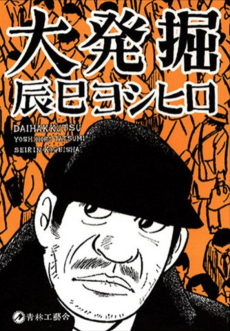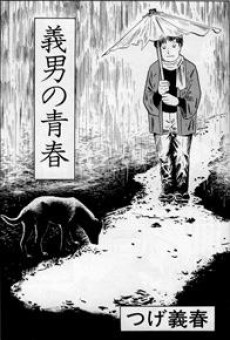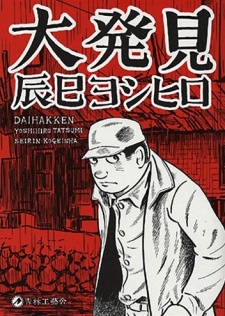TOBACCO-YA NO MUSUME
STATUS
COMPLETE
VOLUMES
1
RELEASE
January 1, 1974
CHAPTERS
11
DESCRIPTION
A shared cigarette offers a momentary connection. A closet hides the evidence of an embarrassed bachelor's laziness. A single woman, not getting any younger, sifts through letters from would-be husbands. A new couple buys two train tickets to anywhere.
Here are the quiet, evocative urban dramas of Masahiko Matsumoto, one of the leading lights of the Japanese alternative-comics movement known as "gekiga." Originally published in 1972-1974, these eleven stories now form the first English-language collection of Matsumoto's mature work. His shy, uncertain heroes face broken hearts, changing families, money troubles, sexual anxiety, and the pressures of tradition, but with a whimsy and lightness of touch that is Matsumoto's trademark.
(Source: Top Shelf Productions)
CHAPTERS
REVIEWS

TeKSMeLater
60/100Trite as the term may be, a hidden gem from an overlooked artist.Continue on AniListCigarette Girl is an anthology of short stories from the late Masahiko Matsumoto (1934-2005), whose name is painfully obscure even within the gekiga movement, an influential time period in manga history that pushed forward a huge variety of artistic techniques. From cinematic, adult-oriented realist narratives which are the bulk of Yoshihiro Tatsumi’s oeuvre to avant-garde surrealistic film/music-mishmash expressions a la Seiichi Hayashi’s Sekishoku Elegy, the gekiga movement sought to go beyond the Disney-inspired creations of Osamu Tezuka which were primarily aimed to a younger audience. Yet despite this rise of ‘alternative comics’, Matsumoto was considered a unique, and sadly, overlooked artist within his peers, and ultimately within the canon of manga.
Inspired by the films of the world-renowned Yasujiro Ozu, Matsumoto illustrates bite-sized panels reminiscent of the trademark ‘pillow shots’ often seen in the director’s work, as well as the short, mundane exploits of the everyday Japanese urban person—which work in contrast to the dark, edgy, themes of his contemporaries. Unlike the 1970s trend of tragic, Japanese New Wave-inspired dramas reflecting the struggles of young adults, Matsumoto portrays a more nuanced and grounded side of society, telling seemingly insignificant vignettes of the average 4.5-tatami room tenant, whether it be a man’s woos for the woman in the cigarette store, the interactions of a condom-selling lady with her customers, or an office worker’s romantic struggles represented by the red high-heels she borrowed from the shoe repair store.
As such, it is not hard to realize why Matsumoto was unappreciated during his time. Amid the revolution of manga’s cultural landscape of conflict-driven protagonists, Matsumoto himself remained faithful to his style, and even differentiated from the term ‘gekiga’ (dramatic pictures), calling his output ‘komaga’ (panel pictures). It is also unfortunate that, at the time of this writing, Matsumoto and his work remains largely ignored by the English-speaking community, despite the global attention given to his colleague and rival Tatsumi, who also leads the foreword of this anthology.
In his foreword, Tatsumi recalls:
What Matsumoto had was the ability to use a subtly humorous naiveté, especially in the drawing of genial average people’s lives, to bring out their charm. Looking back over Matsumoto’s work again after thirty years, the pathos of the man at the time of publication comes through bright and clear. (November 2010)
Matsumoto may have been forgotten, but the essence and timelessness of his themes remain resonant. The lighthearted and subtly comedic approach of his work makes an interesting outlier within gekiga, and in many ways it might have been the progenitor of the contemporary slice-of-life we have gotten to know. I would personally recommend this to readers interested in the history of manga, but other people looking for something different might also find some value out of it.
SIMILAR MANGAS YOU MAY LIKE
 MANGA DramaDaihakkutsu
MANGA DramaDaihakkutsu MANGA DramaMunou no Hito
MANGA DramaMunou no Hito MANGA Slice of LifeYoshio no Seishun
MANGA Slice of LifeYoshio no Seishun
SCORE
- (2.65/5)
MORE INFO
Ended inJanuary 1, 1974
Favorited by 10 Users


